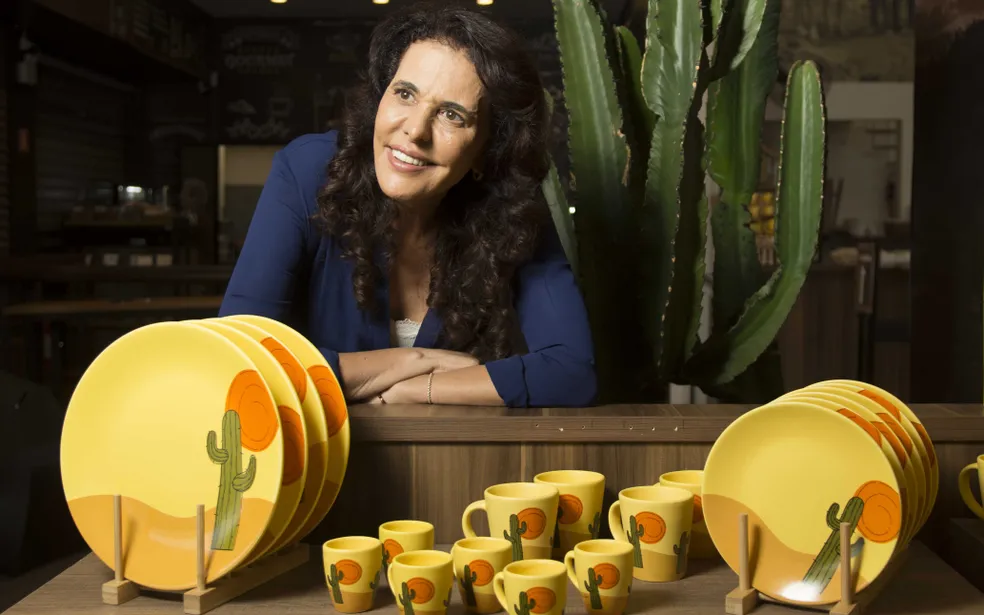Valor Econômico: “Gifts of good reinforces funding for NGOs and artisans”
The following story was originally published in Portuguese in the Valor Econômico newspaper on December 16, 2022.
By Marília de Camargo Cesar — From São Paulo
The end of the year is the time when many social impact organizations, which depend on donations to maintain themselves, promote bazaars to raise extra funds with the sale of handmade gifts. “The sale of the ‘products of good’ generates resources that already help fund 30% of the institution’s social projects,” says Alcione Albanesi, president of Amigos do Bem, an institution with projects in education, work, income, access to health, water, and housing in the Northeast. “The estimate is that this number will grow even more in the coming years,” she says. Around 150,000 people are assisted every month by the NGO in 300 villages in the backlands of Alagoas, Pernambuco and Ceará.
To develop the potential of each region, Amigos do Bem has built 15 productive units, which promote everything from cashew planting to nut processing, candy and pepper factories, sewing workshops, and handicraft workshops. These units generate more than 1,500 jobs in the sertão. According to Albanesi, there are 230,000 cashew trees in 630 hectares of productive land, which is monitored by Embrapa.
Besides this, six sewing workshops guarantee employment and income for 300 women from the sertão who, according to the NGO, “left the hoe behind and started to receive their first salaries”. “All the income obtained from sales of 100% solidarity products is reverted to our educational and life transformation projects.”
This year, according to Albanesi, more than 500 companies purchased the products, a 40% increase over 2021. The estimate is to market more than 100,000 gifts, and for 2023, the expectation is to grow 50%. “Products of good transform lives. Our social products promote a virtuous cycle of transformation in regions where there was only hunger, drought and extreme poverty.”
Another social project that achieved good results with bazaars this month is Tereza, a brand of handcrafted products, such as handbags, wallets, crocheted placemat sets and accessories produced by women deprived of liberty, former prisioners or victims of domestic violence. There were two Christmas bazaars in São Paulo, one inside Itaú’s private banking division and another at Microsoft, which totaled R$ 11,000 in business.
Tereza brings together women who participate in the Entrepreneurship Behind and Beyond Bars program of the Humanitas360 Institute, an organization that acts as an incubator for social cooperatives, providing seed funding, support in product development and business management, as well as legal and social assistance, and spirituality support. “These sales will help the cooperative women’s Christmas be more prosperous,” says Patricia Villela Marino, president of Humanitas360. “The business is resurging now, this year was about reconnecting the ends, after two very challenging years because of the pandemic.”
“Humanitas360 came along when I was forgotten by everyone. The project came and changed my thoughts. Today I am starting to reintegrate into society, away from crime. I am a prisoner on semi-open conditions and I am studying law at the Zumbi dos Palmares University with a 50% scholarship, due to my good evaluation on the Enem exam. I am a warrior who, thanks to Tereza, took the good out of the bad,” says Flávia Maria da Silva, who is in jail for drug trafficking.
“At 15, I met the only love of my life, got pregnant, and became a mother at 16. A year later, I became a widow, with a baby to raise and an ‘inheritance of crime’, since I started to manage the ‘business’ of my great love. In the following years, I suffered and made my family suffer. A love story with a cursed inheritance. But I matured a lot in jail and transformed myself.” This account is found on the brand’s Instagram. Tereza is the name the inmates give to the improvised rope used in escape attempts.
Currently, the program supports two cooperatives: Cuxá, in the Pedrinhas Penitentiary Unit in São Luís do Maranhão, and Anahy, in the Sapé community inside the Rio Pequeno neighborhood, west zone of São Paulo. “We also started a project in Peruíbe (SP), a cooperative with 50 women who are victims of domestic violence, which begins in February,” says Marino.
According to her, the brand’s products should gain visibility with the entrance this month in the Magalu marketplace. Until then it was only possible to buy the products through Tereza’s website, with orders placed via WhatsApp. Companies like Azul, Alcoa, Banco Inter, Microsoft, Itaú and Magalu are already Tereza’s clients.
Jirau da Amazônia, an organization created by the Amazonas Sustentável Foundation in partnership with the Zagaia Amazônia Association, also promotes the sale of handicrafts and sustainable products from the region. The goal is to foster business, aggregate value through the qualification of artisans and generate positive impacts for traditional populations, according to Virgilio Viana, general superintendent of FAS.
Among the works supported by Jirau is the Association of Indigenous Artisans of the Municipality of São Gabriel da Cachoeira (Assai), founded in 1999 by a group of artisans from various ethnic groups. They work mainly with tucum, a fiber of the tucunzeiro palm tree, and produce samburás (baskets made of vines), necklaces, earrings, hats, purses, fruit bowls, among others. The products of Jirau da Amazônia can be purchased through the Americanas marketplace.

